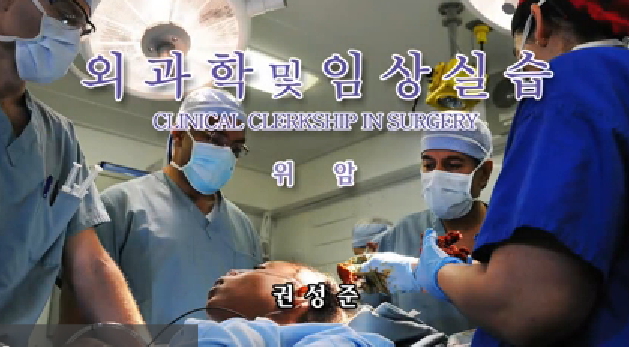The article is devoted to the problem of history, ways and means of linguistic borrowings from Chinese, Japanese, German, Spanish, French, Italian, Russian, Kazakh in the modern Korean language. The authors touch upon categories and frequency of using...
http://chineseinput.net/에서 pinyin(병음)방식으로 중국어를 변환할 수 있습니다.
변환된 중국어를 복사하여 사용하시면 됩니다.
- 中文 을 입력하시려면 zhongwen을 입력하시고 space를누르시면됩니다.
- 北京 을 입력하시려면 beijing을 입력하시고 space를 누르시면 됩니다.
부가정보
다국어 초록 (Multilingual Abstract)
The article is devoted to the problem of history, ways and means of linguistic borrowings from Chinese, Japanese, German, Spanish, French, Italian, Russian, Kazakh in the modern Korean language. The authors touch upon categories and frequency of using English loan words in Korean. In the Korean language often appear language units composed of English and chinese and other components that have meaning absent in the original language. Many Koreans are not even aware that some of the words they use, have come from foreign languages and firmly entered into the everyday life becoming un-separable vocabulary of the Korean. However, in the development of any modern language we can periodically observe so called “purism” periods (from the Latin “purus” - pure), when all of a sudden everybody begins to fight against foreign language vocabulary, replacing it with native one. Thus, this subsystem of the Korean language substantially drifted away from the English language, and now is developing according to its own laws. So, what happens to the phonetic form of English borrowings when they get into the Korean language? This question applies only to English borrowings and other borrowings from European languages. The paper also suggests approaches to organizing experimental work on analyzing ways of transmitting English borrowings by means of transcription, transliteration, transplantation and tracing.
참고문헌 (Reference)
1 Shor R., "Yazyik i obschestvo"
2 Mazur Yu. N., "Russko – koreyskiy razgovornik" Russkiy yazyik Media 110-, 2014
3 Kim G., "Populyarnoe koreevedenie. Seriya AKK, Almatyi, ZAO «SenIm»" 45-, 2013
4 Kim P. L., "Opyit sinhronicheskogo izucheniya inoyazyichnyih leksicheskih edinits"
5 Smirnitskiy A. I., "Leksikologiyaangliyskogoyazyika" 2015
6 Tihonov V., "Korean as standard language" 514-522, 2015
1 Shor R., "Yazyik i obschestvo"
2 Mazur Yu. N., "Russko – koreyskiy razgovornik" Russkiy yazyik Media 110-, 2014
3 Kim G., "Populyarnoe koreevedenie. Seriya AKK, Almatyi, ZAO «SenIm»" 45-, 2013
4 Kim P. L., "Opyit sinhronicheskogo izucheniya inoyazyichnyih leksicheskih edinits"
5 Smirnitskiy A. I., "Leksikologiyaangliyskogoyazyika" 2015
6 Tihonov V., "Korean as standard language" 514-522, 2015
동일학술지(권/호) 다른 논문
-
An Analysis of Social Integration of Korea after Unification
- 한국글로벌문화학회
- Sang-Hyun SEO
- 2016
- KCI등재후보
-
Developing the Career Guidance Service in Mongolia by Using Practice of North Asian Countries
- 한국글로벌문화학회
- TS. Tsetsegmaa
- 2016
- KCI등재후보
-
The Maintenance of Incorporeal Cultural Inheritance of ‘Корё сарам’
- 한국글로벌문화학회
- Joong-Kwan KIM
- 2016
- KCI등재후보
-
Cultural Peculiarities of Linguistic Borrowings in the Modern Korean Language
- 한국글로벌문화학회
- Irina LARIONOVA
- 2016
- KCI등재후보
분석정보
인용정보 인용지수 설명보기
학술지 이력
| 연월일 | 이력구분 | 이력상세 | 등재구분 |
|---|---|---|---|
| 2022 | 평가예정 | 신규평가 신청대상 (신규평가) | |
| 2021-12-01 | 평가 | 등재후보 탈락 (계속평가) | |
| 2019-01-01 | 평가 | 등재후보학술지 선정 (신규평가) |  |
| 2018-12-01 | 평가 | 등재후보 탈락 (계속평가) | |
| 2017-12-20 | 학술지명변경 | 한글명 : 한국글로벌문화학회지 -> 글로벌 문화연구외국어명 : journal of global culture -> GLOBAL CULTURE REVIEW |  |
| 2016-01-01 | 평가 | 등재후보학술지 선정 (신규평가) |  |
| 2012-01-02 | 학회명변경 | 한글명 : 한국문화글로벌학회 -> 한국글로벌문화학회영문명 : 미등록 -> KOREA ASSOCIATION of GLOBAL CULTURE |
학술지 인용정보
| 기준연도 | WOS-KCI 통합IF(2년) | KCIF(2년) | KCIF(3년) |
|---|---|---|---|
| 2016 | 0 | 0 | 0 |
| KCIF(4년) | KCIF(5년) | 중심성지수(3년) | 즉시성지수 |
| 0 | 0 | 0 | 0 |






 KCI
KCI




